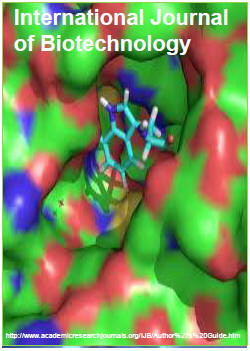|
|
|
Academic Research Journal
of Biotechnology. ISSN: 2384-616X Vol. 1(1), pp. 18-22, June, 2014.
©2014 Academic Research
Journals
Full
Length Research
Informed
consent for antenatal fetal anomaly scan
1Dodampahala
S.H., 2Wijeratne N.
1Principal
Author is an Associate Professor in Obstetrics and Gynaecology,
Department of Obstetrics and Gynaecology, 2Faculty of
Medicine, University of Colombo, Srilanka. Corresponding author’s email:
hemdodam@gmail.com
1,2
189/20 Sama Mawatha, Nawala Road, Nugegoda, Sri Lanka
Accepted 29
May 2014
The objectives of prenatal screening and testing for fetal abnormality
include the identification of: Anomalies that are not compatible with
life, Anomalies associated with high morbidity and long-term disability,
Fetal conditions with the potential for intrauterine therapy ,Fetal
conditions that will require postnatal investigation or treatment. The
study analyzed the current requirement by client and doctors in
obtaining the consent, in order to develop a structured protocol to
obtain consent.
Methodology: A descriptive cross sectional study using qualitative
methods was conducted for the above study. Hundred (n=100) mothers
awaiting anomaly scans at the De Soyza maternity hospital, Professorial
unit were interviewed by the researchers to obtain their perspectives on
consent obtained for the anomaly scan. Twenty (n=20) medical officers of
all grades underwent a focus group discussion on their perspectives of
obtaining consent for the anomaly scan. Data were analyzed through
coding of the transcribed focus group discussions and extraction of main
themes.
Results: Medical officers of all grades participated in the focus group
discussion from intern medical officers to consultant obstetricians. All
were in agreement that consent obtaining procedure adopted by the
medical officers in the current setting is inadequate. Only verbal
consent is obtained usually at the busy clinic set up without allowing
the mother adequate time to consider whether she wishes to undergo the
anomaly scan. The mother is rarely informed of what the anomaly scan
entails and the indication for the procedure. Details on what her
options if an anomaly is detected are rarely discussed. Consent is
usually not obtained by the doctor who performs the scan and does not
involve the partner in the decision making process.
Conclusions: The current practice adopted in obtaining consent prior to
routine antenatal fetal anomaly scan was inadequate, with little
information being provided to the mother and consent not being
specifically sought prior to the scan procedure.
Key words: Informed consent/ antenatal scan/fetal
anomaly/counseling
FULL TEXT [PDF]
|
|
